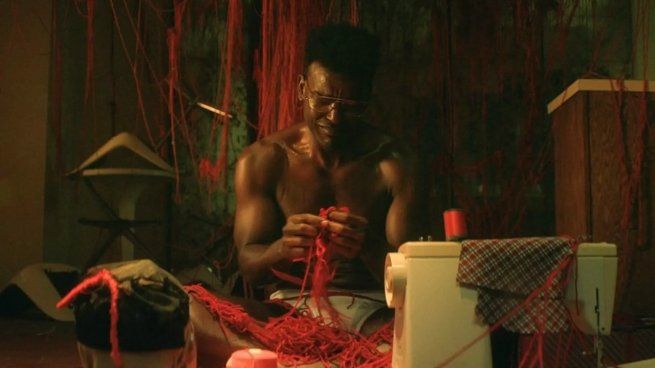Almost 500 people play children’s games in the Netflix production “Squid Game” – and whoever loses is killed. There is a hype about the series that also affects children. What are the consequences?
The streaming series “Squid Game” offers a series of brutal, bloody scenes – and yet many younger children are already watching in Germany. In Pinneberg near Hamburg it was said from a daycare center that even five to six year old children played the series.
The macabre competition has also become a role model in school playgrounds, as teachers warned. Experts argue that the FSK age rating from 16 years must be observed. The many scenes of violence represented a very high level of psychological stress for children because they were not yet able to process what they saw, said psychotherapist Katajun Lindenberg from Goethe University in Frankfurt to the German press agency.
There is also the risk that, in the sense of model learning, the willingness of children to use violence will increase if they are given such an example of violence, explained the head of the department for child and adolescent psychotherapy. Children could not yet grasp the social criticism of “Squid Game”.
“From an aesthetic point of view and with a lot of inner distance, the series can be understood as innovative and perhaps even arousing,” said media educator Maya Götz from the International Central Institute for Youth and Educational Television at Bayerischer Rundfunk. But this requires a high degree of demarcation and media knowledge, which children in particular do not have.
The South Korean series “Squid Game” is the most successful Netflix production to date with the highest number of viewers. The story of almost 500 people who got into debt is told in nine episodes. They compete against each other in children’s games in order to win prize money in the millions. The macabre competition does not allow a second chance: Those who do not make it to the next round will be killed.
Kita and school administrators have already made parents aware of the dangers of the series for children in many places. Lindenberg and Götz also emphasize that parents should not allow their children to watch the series. The release from the age of 16 by the Voluntary Self-Control of the Film Industry (FSK) is there for good reason. “Many experts have thought about this. This is not an arbitrary classification, ”Lindenberg emphasized.
Parents should make it clear to their children that “being strong” means not watching the series or not watching any further, said media educator Götz. Without voluntary renunciation, it is often difficult to prevent children who are a little older from seeing the series or parts of it in digital space. For example, there is no youth protection function for FSK-16 approvals on Netflix, explained Götz. In addition, “Squid Game” is already widespread: The games from the series are also re-enacted in video games such as “Minecraft” and there are numerous so-called memes on Tiktok or Instagram, i.e. skits in which the series is taken up or corresponding joke pictures. Children could also watch the series with friends or siblings.
It is important to talk about what you have seen, if necessary, in order to help with processing, said Götz. Especially for children up to ten years of age, watching “Squid Game” can be a traumatic experience and lead to nightmares. The mass, emotionless slaughter of people in connection with the children’s games and the bright colors of the series scenes could not be understood by children – and kindergarten children in particular could not even express their feelings in the process. In the case of older children between 10 and 15 years of age, it can be assumed that many people speak cool about the series – “even if the pictures are then inscribed more deeply than they probably admit,” said Götz. Parents should also pay attention to them and offer to talk to them.
In addition to the psychological and emotional stresses, therapist Lindenberg sees other possible dangers from so-called socio-psychological group phenomena. Since children play a role in re-enacting the “Squid Game” and imitating a hierarchical system with a power imbalance, it can be easier for boundaries to be crossed and the situation to escalate. In addition, a situation could arise in which other children tolerate such behavior. After all, it’s just a game and everyone does it that way. “Once children are involved in something like this, they cannot get out of it so easily without the help of adults.”
Source From: Stern
David William is a talented author who has made a name for himself in the world of writing. He is a professional author who writes on a wide range of topics, from general interest to opinion news. David is currently working as a writer at 24 hours worlds where he brings his unique perspective and in-depth research to his articles, making them both informative and engaging.




